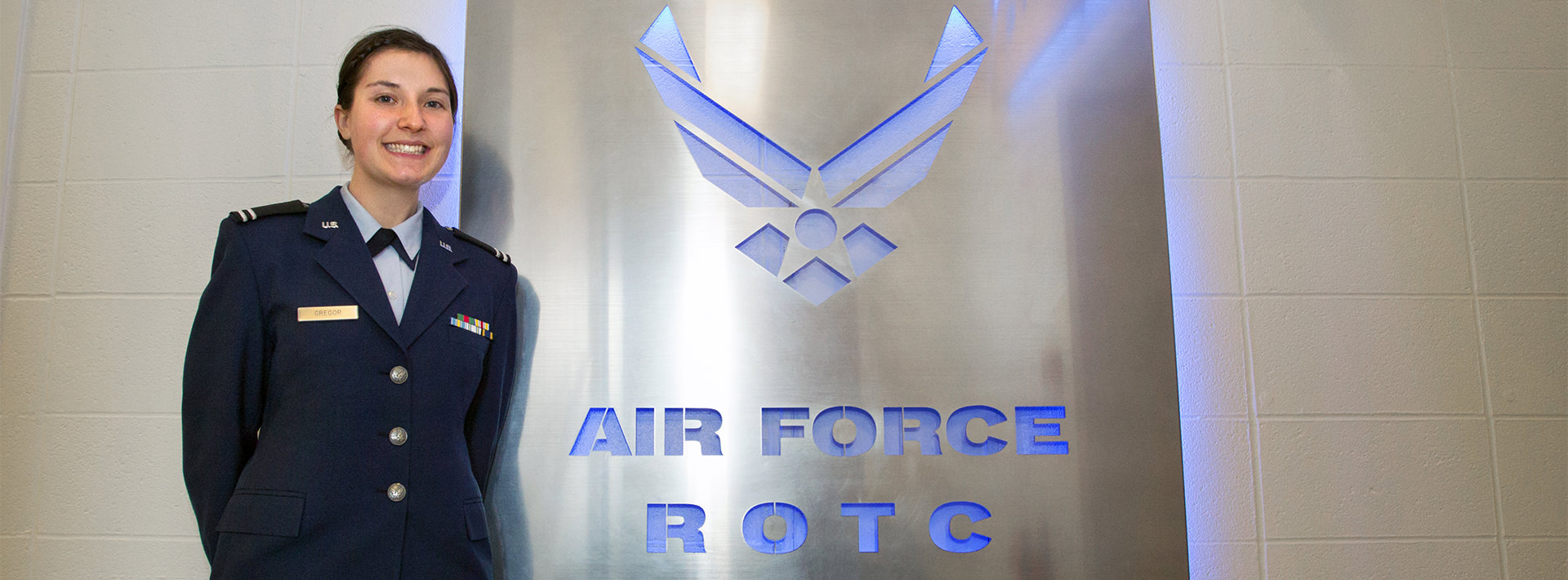Givens Fellowship Provides Perspective
Student digs deep into Vietnam War

By Matt Markey
As an officer in the Air Force with broad-based training and education, Jessica Gregor had a good grasp of military strategy and tactics, and the basic elements of conflict, but she struggled to process what took place in the Vietnam War. Her grandfather had served during that war, but had shared very little about his experiences, piquing her interest even more and compounding her curiosity.
After spending just over three weeks in Vietnam last summer on a Stuart R. Givens Memorial Fellowship, and researching the war and its impact from the Vietnamese perspective, Gregor said she now knows more about the conflict and the circumstances surrounding it.
But the questions that have troubled many since the war’s inception and fueled the debate that often split the U.S. over its role in Vietnam, remain unanswered. She went to Vietnam hoping to find some clarity about the war and had a very rewarding experience, but found little resolution.
“The more I got into it, especially while I was in Vietnam, the less clear that everything became,” she said. “I have less of an answer than I had when I started, but I guess that is something I could only learn by going there and talking to the Vietnamese people.”
When she received the fellowship to conduct her on-the-ground research in Vietnam, Gregor had already been an honor graduate of the Air Force’s basic military training school, ranking in the 90th percentile of all graduates in both the academic and physical standards. She also served 10 weeks on a Department of Defense project in Kenya.
Gregor knew the difficult history associated with the war in Vietnam—more than a million dead, persistent questions about our military intervention and why we were there, and the intense debate over the war that raged back on U.S. soil. There were always myriad questions and few answers.
But what bothered her most was the lack of information on the Vietnamese perspective. What did the people who lived through the war think, and how aware was the latest generation in Vietnam of what took place?
“That all intrigued me,” she said. “We assume history tells the story, but the historical account doesn’t tell the whole story, and sometimes not the true story. History can be very subjective.”
Through her Fellowship experience, Gregor sought to re-learn the history of the war from the Vietnamese point of view, and see how the conflict might still impact the daily lives of the people. She contacted professors and students at a university in Vietnam that specialized in Vietnamese studies, and sought out a cultural immersion by arranging to stay in the homes of college-age students who were fluent in English.
“I was a little concerned going in, since this is a communist country,” she said. “The war is something we can talk about here, but the threat over there of what the regime would do to you was very real. I wasn’t allowed to tape the interviews I did, and a lot of it sounded like it came straight from a communist party rule book.”
Gregor said her Vietnamese contacts would express caution if her questions moved into an area they deemed too sensitive. On one occasion, an entire family got involved, trying to provide the “right” answer to her question.
But her research was far from fruitless. She talked to people who had served in the military during the war and civilians who had lived through it. She learned that the perspective on the war held by the younger generation differed “like night and day” from that of older Vietnamese.
She was also somewhat surprised to learn that there was very little animosity towards Americans, despite the destruction the war left on the country of Vietnam.
“They think of the war as just a time when the two countries disagreed and they view it as water under the bridge,” she said. “Even the veterans I spoke to said it was more the leaders of our country they had a problem with, not with the soldiers. Their impression of the United States today is that shinning city on the hill.”
While the fellowship allowed Gregor to visit this once war-torn land and seek out answers to the questions that many have labored over for decades, she also found something else.
“A lot of people here were really scared for me when I said I was going, but I never felt unsafe,” she said. “The healing that has taken place is amazing and I would go back in a heartbeat.”
Gregor said her ultimate goal is to take graduate level courses at BGSU and write her dissertation on some facet of her Vietnam experience.
“I was interested in this subject before, but the experience I had in Vietnam cultivated it and magnified it even more,” she said. “Without the support of the fellowship, I would never have had the opportunity to do something like this— something that will be with me for the rest of my life.”
Inspired by the University of North Carolina at Chapel Hill's Burch Fellows Program, the Stuart R. Givens Memorial Fellowship was initiated by friends of Dr. Givens to honor his passion for student learning. The Fellowship recognizes resourcefulness, imagination, and significant ability among Bowling Green State University undergraduate students by supporting self-designed off-campus experiences that will enable them to pursue a passionate interest in a manner not otherwise possible through an academic program, regular summer job, enrichment program, or organized study abroad program. To remain true to the spirit of the Givens Fellowship, students are encouraged to think broadly in shaping their projects; that is, to look beyond activities that relate to their field of academic study. It is expected that the experience will make a demonstrable difference in their lives and help them grow both personally and intellectually. Make a gift to support this, or other BGSU student programs.
Updated: 12/02/2017 12:46AM
